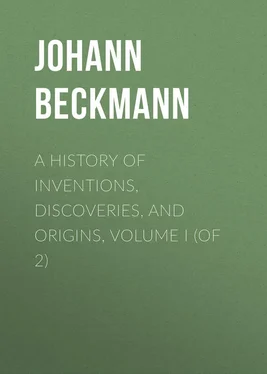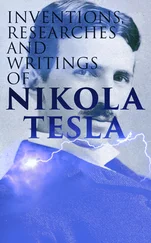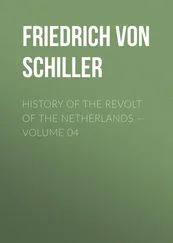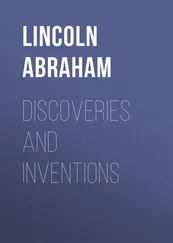Johann Beckmann - A History of Inventions, Discoveries, and Origins, Volume I (of 2)
Здесь есть возможность читать онлайн «Johann Beckmann - A History of Inventions, Discoveries, and Origins, Volume I (of 2)» — ознакомительный отрывок электронной книги совершенно бесплатно, а после прочтения отрывка купить полную версию. В некоторых случаях можно слушать аудио, скачать через торрент в формате fb2 и присутствует краткое содержание. Жанр: foreign_antique, foreign_prose, на английском языке. Описание произведения, (предисловие) а так же отзывы посетителей доступны на портале библиотеки ЛибКат.
- Название:A History of Inventions, Discoveries, and Origins, Volume I (of 2)
- Автор:
- Жанр:
- Год:неизвестен
- ISBN:нет данных
- Рейтинг книги:4 / 5. Голосов: 1
-
Избранное:Добавить в избранное
- Отзывы:
-
Ваша оценка:
- 80
- 1
- 2
- 3
- 4
- 5
A History of Inventions, Discoveries, and Origins, Volume I (of 2): краткое содержание, описание и аннотация
Предлагаем к чтению аннотацию, описание, краткое содержание или предисловие (зависит от того, что написал сам автор книги «A History of Inventions, Discoveries, and Origins, Volume I (of 2)»). Если вы не нашли необходимую информацию о книге — напишите в комментариях, мы постараемся отыскать её.
A History of Inventions, Discoveries, and Origins, Volume I (of 2) — читать онлайн ознакомительный отрывок
Ниже представлен текст книги, разбитый по страницам. Система сохранения места последней прочитанной страницы, позволяет с удобством читать онлайн бесплатно книгу «A History of Inventions, Discoveries, and Origins, Volume I (of 2)», без необходимости каждый раз заново искать на чём Вы остановились. Поставьте закладку, и сможете в любой момент перейти на страницу, на которой закончили чтение.
Интервал:
Закладка:
238
This machine was invented by Kircher, in imitation of the ear of Dionysius; nor is it a vain and empty speculation, for the machine produces an infallible effect. Kircher caused to be made at Rome, of tin plate, a very large and straight tube, like a funnel, and placed it in an apartment next to his chamber, in such a manner that the large end projected into the garden of the college, and the less entered his chamber. When the porter of the college had occasion to call him to the gate, that he might not be obliged always to go up stairs, or to bawl out, he went to the broad end of the funnel, and communicated what he wished to Kircher. – Schotti Magia Universalis, ii. p. 156.
239
Eschinardi Discursus de Sono Pneumatico, p. 10.
240
Physico-theology.
241
Our Kircher, in his Phonurgia, justly claims that invention, as it was several years ago exhibited by him in the Jesuits’ college at Rome, and an account of it printed. That this is true I myself was an eye-witness; though I must acknowledge that no one before the above-mentioned Englishman ever applied this speaking instrument, at least in so perfect a manner, to that use for which it was afterwards employed. – Magisterium Naturæ et Artis. Brixiæ, 1684–92, fol. ii. p. 436.
242
Journal des Sçavans, tome iii.
243
Ibid. p. 131.
244
J. A. Sturm, Collegium Experimentale, ii. p. 146.
245
Philosophical Transactions.
246
Mémoires de l’Acad. des Sciences à Berlin, 1763, p. 97.
247
Experimental Inquiry into the Nature, &c. of Heat, p. 225.
248
La Historia General de las Indias. Sevilla, 1535, fol. lib. xvii. c. 13. [An earlier notice of the pine-apple had been given by Andræa Navagero in his letter to Rannusio, dated from Seville, May 12, 1526. He says, “I have also seen a most beautiful fruit, the name of which I do not recollect: I have eaten of it, for it was imported fresh. It has the taste of the quince, together with that of the peach, with some resemblance also of the melon: it is fragrant, and is truly of most delicious flavour.” – Lettere di xiii Huomini Illustri.]
249
Les Singularitez de la France Antarctique, autrement nommée Amerique. Par André Thevet. Anvers, 1558.
250
Voyage faict en la terre du Brésil, autrement dite Amerique. Par J. de Lery. Genève, 1580, 8vo, p. 188.
251
Rerum Med. novæ Hispaniæ Thesaurus. Rome, 1651. fol.
252
The accounts given by Acosta and Linschotten may be seen in Bauhini Histor. Plantarum, iii. p. 95. Kircher in his China Illustrata says, “That fruit which the Americans and people of the East Indies, among whom it is common, call the ananas, and which grows also in great abundance in the provinces of Quantung, Chiamsi, and Fokien, is supposed to have been brought from Peru to China.”
253
See Leibnitz, Nouveaux Essais sur l’Entendement Humain (Œuv. Phil.), p. 256, Amst. 1765, 4to.
254
Lersner, Chronik, ii. p. 824.
255
Miller’s Gardener’s Dictionary, i. p. 132. Lueder, Wartung der Küchengewächse. Lubeck, 1780, 8vo, p. 248.
256
Miller, ii. p. 824. Lueder, p. 39. That putrid bark forms an excellent manure, had been before remarked by Lauremberg, in Horticultura, p. 52.
257
Nova Plantarum Americanarum Genera. Parisiis 1708, 4to, p. 46.
258
[The plants producing the pine-apple have been separated by Prof. Lindley under the name Ananassa from the allied genus Bromelia , after which the Natural Order Bromeliaceæ takes its name.]
259
Halleri Bibl. Botan. i. p. 640.
260
De Arte Amandi, lib. iii. v. 629.
261
Ausonii Epist. xxiii. v. 21. The poet afterwards teaches other methods of secret writing, and Gellius, lib. xvii. cap. 9, mentions the like.
262
Colum. De Re Rust. x. 354. and xi. 3, 60.
263
Plin. lib. xxvi. cap. 8. p. 400.
264
The sixth observation of the second century is as follows: Magnetic waters which act at a distance . An astonishing effect, indeed, is produced by the contest of the following waters, which are thus made. Let quick-lime be quenched in common water, and while quenching, let some orpiment be added to it (this however ought to be done by placing warm ashes under it for a whole day), and let the liquor be filtered, and preserved in a glass bottle well corked. Then boil litharge of gold well pounded, for half an hour with vinegar in a brass vessel, and filter the whole through paper, and preserve it also in a bottle closely corked. If you write any thing with this last water with a clean pen, the writing will be invisible when dry; but if it be washed over with the first water it will become instantly black. In this, however, there is nothing astonishing; but this is wonderful, that though sheets of paper without number, and even a board be placed between the invisible writing and the second liquid, it will have the same effect, and turn the writing black, penetrating the wood and paper without leaving any traces of its action, which is certainly surprising; but a fetid smell, occasioned by the mutual action of the liquids, deters many from making the experiment. I am, however, of opinion, that I could improve this secret by a more refined chemical preparation, so that it should perform its effect through a wall. This secret I received, in exchange for others, from J. Brosson, a learned and ingenious apothecary of Montpelier.
265
Tachenii Hippocraticæ Medicinæ Clavis, p. 236. 1669.
266
Collectanea Chymica Leydensia, edidit Morley. Lugd. Bat. 1684, 4to, p. 97.
267
For an account of various kinds of secret writing see Halle, Magie oder Zauberkräfte der Natur. Berlin, 1783, 8vo, v. i. p. 138.
268
Hist. et Mém. de l’Acad. des Sciences à Paris, 1737, pp. 101 and 228.
269
Historia Cadmiæ fossilis, sive Cobalti. Berl. 1744.
270
This account, together with Teichmeyer’s receipt for preparing it, may be found in Commercium Litterarium Norimbergense, 1737, p. 91.
271
“Copiosius minera bismuthi tam ab aqua forti quam ab aqua regia dissolvitur, restante pulvere albo corroso; solutio in aqua forti roseum colorem sistit, quæ si sali in aqua soluto, secundum præscriptum D. J. W. in clave, affundatur, abstrahatur, ex residuo extrahitur sal roseum, quod pulverisari et cum spiritu vini extrahi potest: adeoque hæc autrix jam anno 1705 publice totum processum et fundamentum sic dicti atramenti sympathetici, quod a calore viridescit, evulgavit.” – Pot, Observ. Chym. collectio prima. Berolini, 1739, p. 163.
272
So thinks Gesner in Selecta Physico-œconomica, or Sammlung von allerhand zur Naturgeschichte gehörigen Begebenheiten. Stutgard, vii. p. 22.
273
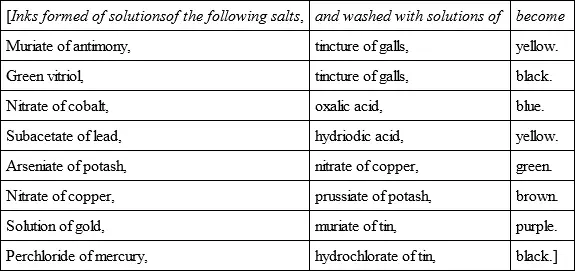
274
Интервал:
Закладка:
Похожие книги на «A History of Inventions, Discoveries, and Origins, Volume I (of 2)»
Представляем Вашему вниманию похожие книги на «A History of Inventions, Discoveries, and Origins, Volume I (of 2)» списком для выбора. Мы отобрали схожую по названию и смыслу литературу в надежде предоставить читателям больше вариантов отыскать новые, интересные, ещё непрочитанные произведения.
Обсуждение, отзывы о книге «A History of Inventions, Discoveries, and Origins, Volume I (of 2)» и просто собственные мнения читателей. Оставьте ваши комментарии, напишите, что Вы думаете о произведении, его смысле или главных героях. Укажите что конкретно понравилось, а что нет, и почему Вы так считаете.
